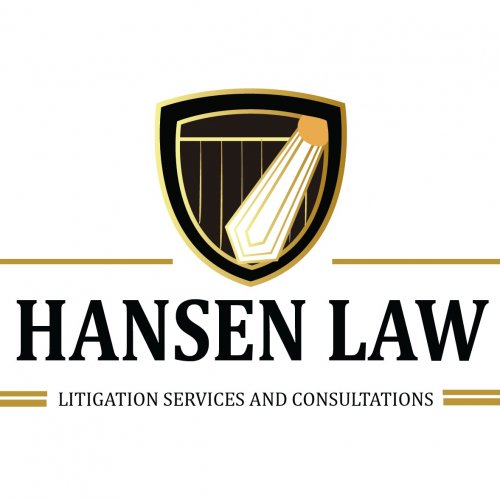Best Arrests & Searches Lawyers in Pattaya
Share your needs with us, get contacted by law firms.
Free. Takes 2 min.
List of the best lawyers in Pattaya, Thailand
Thailand Arrests & Searches Legal Articles
Browse our 1 legal article about Arrests & Searches in Thailand written by expert lawyers.
- What to do After Being Arrested in Thailand
- Getting arrested in Thailand is a frightening and stressful experience, but if you keep calm and know what to do, you can make things much easier for yourself. In this article, we will go through the key steps you should take after being arrested in Thailand, and help you deal... Read more →
About Arrests & Searches Law in Pattaya, Thailand
The laws concerning arrests and searches in Pattaya, a popular tourist destination in Chonburi Province, Thailand, are guided by the broader Thai criminal law as codified in the Criminal Procedure Code of Thailand. These laws are enforced by the Royal Thai Police and aim to maintain public order while ensuring that the rights of individuals are upheld. Understanding these laws is crucial, especially for expatriates and tourists, as certain legal nuances might differ from what they are accustomed to in their home countries.
Why You May Need a Lawyer
Gathering legal advice is essential in several scenarios: if you have been arrested, if the police conduct a search on your premises, if you are a witness or suspect in a criminal investigation, or if you need assistance navigating the local legal system. Many situations that lead to arrests or searches can be complex, and language barriers or unfamiliarity with the laws could exacerbate the situation. A lawyer well-versed in local laws can provide guidance and representation that could be crucial for adequately handling your case.
Local Laws Overview
The key aspects of laws regarding arrests and searches in Pattaya include:
- Arrest warrants: Generally, police must have a valid warrant to arrest an individual unless they catch the person in the act of committing a crime, or in cases where obtaining a warrant prior to arrest would allow the suspect to escape or destroy evidence.
- Search warrants: A search typically requires a warrant, except in certain situations such as urgent circumstances, consent by the person being searched, or if it is believed that a serious crime is being committed.
- Rights upon arrest: An individual has the right to be informed of the charges against them and to communicate with a lawyer or someone to assist with their defense.
- Detention: The police must bring a detained person before the court within 48 hours, although this period may be extended under certain conditions.
Frequently Asked Questions
What should I do if I am arrested in Pattaya?
Stay calm and cooperate with the authorities. Ask to contact your lawyer and inform them of the arrest. It's also advisable to contact your embassy if you are a foreigner.
Can the police search my belongings without my permission?
Generally, a warrant is required to conduct a search unless you consent or the search falls under particular exceptions such as urgent circumstances.
What rights do I have during a police search?
You have the right to see the search warrant and ask for verification of the officers’ identity. Be present during the search and consult your lawyer if needed.
How long can I be detained without charge?
Police can detain you for up to 48 hours before they must either charge you or bring you before a magistrate for a decision on further detention.
Is physical evidence obtained by the police always admissible in court?
If evidence is obtained unlawfully, such as through a search without a warrant or valid exception, it may be challenged in court.
Can I refuse to answer police questions?
You have the right to remain silent and it is often advisable to wait until you have legal representation before answering questions.
Do I need legal representation for minor offenses?
While not mandatory, having legal advice can be beneficial even for minor offenses, especially if you are unfamiliar with legal proceedings in Pattaya.
What should I do if I witness a crime?
Report it to the authorities and provide any information you have. You might be called upon to give a statement or testify in court.
How should I handle visitations or interactions with police in public areas?
Always carry identification, remain polite, and comply with reasonable requests while being aware of your rights.
What happens if I violate Thai law as a foreign national?
You could face deportation or blacklisting from the country in addition to the legal consequences applicable to residents.
Additional Resources
Several resources can assist when dealing with arrests and searches in Pattaya:
- Royal Thai Police: For official guidelines, locations of police stations, and initial inquiries.
- Local law firms: Many offer consultation and representation for criminal matters.
- Thai Lawyers Council: Provides basic legal information and assistance.
- Embassies and Consulates: Can offer support and guidance for foreign nationals.
Next Steps
If you find yourself in need of legal assistance regarding arrests and searches in Pattaya, it’s crucial to engage a qualified lawyer promptly. Start by seeking recommendations for reputable law firms with expertise in criminal law. Contact your local embassy for guidance if you are a foreigner. Prepare any documents pertinent to your case and consider arranging for translation services if language barriers exist. Always respect local laws and cooperate with authorities while protecting your legal rights.
Lawzana helps you find the best lawyers and law firms in Pattaya through a curated and pre-screened list of qualified legal professionals. Our platform offers rankings and detailed profiles of attorneys and law firms, allowing you to compare based on practice areas, including Arrests & Searches, experience, and client feedback.
Each profile includes a description of the firm's areas of practice, client reviews, team members and partners, year of establishment, spoken languages, office locations, contact information, social media presence, and any published articles or resources. Most firms on our platform speak English and are experienced in both local and international legal matters.
Get a quote from top-rated law firms in Pattaya, Thailand — quickly, securely, and without unnecessary hassle.
Disclaimer:
The information provided on this page is for general informational purposes only and does not constitute legal advice. While we strive to ensure the accuracy and relevance of the content, legal information may change over time, and interpretations of the law can vary. You should always consult with a qualified legal professional for advice specific to your situation.
We disclaim all liability for actions taken or not taken based on the content of this page. If you believe any information is incorrect or outdated, please contact us, and we will review and update it where appropriate.
















